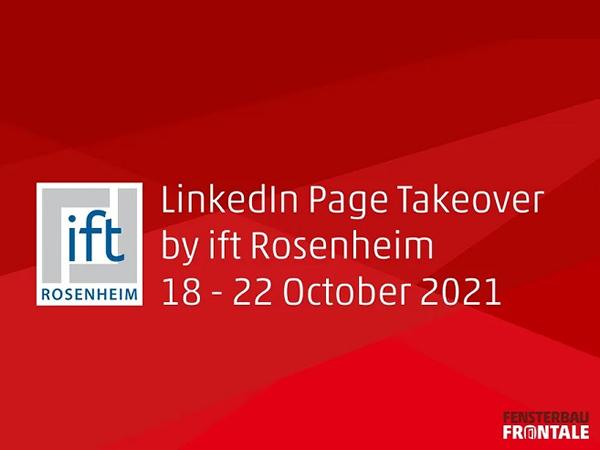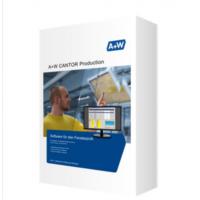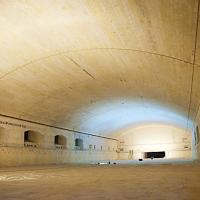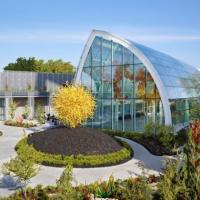
Date: 18 October 2021
For many years, ift Rosenheim and NürnbergMesse have been organising interesting special shows on industry-relevant topics together with innovative manufacturers at the world's leading trade fair FENSTERBAU FRONTALE. From 29 March - 1 April 2022, the special show "Green Deal" will show how sustainable windows and building elements can reduce CO2 and protect people from climate extremes.
Every individual in the window industry can make a contribution to the necessary modernisation of the building stock.
This week, the testing and research institute ift Rosenheim will therefore present an important aspect of this major task every day.
Follow them here on LinkedIn to stay up to date: https://www.linkedin.com/company/ift-rosenheim/
Climate protection as an opportunity for the window industry
The building sector has a key role to play in achieving the climate targets. In Germany, almost 40 percent of the 634 million window units need to be renovated. If these 235 million windows were renovated to make them more energy efficient, more than 12 milliontonnes of CO2 could be saved annually. That is 10% of the total German energy consumption for buildings of 120 million tonnes (source: Umweltbundesamt).
Politicians are also aware of this, so that building elements and building materials will certainly have to meet higher energy efficiency and sustainability requirements in the future, and energy-efficient refurbishment will have to be increased through subsidies and specifications.
Therefore, the industry can expect continued business. But the CO2 footprint of building products is also coming more into focus, because the "grey energy" for new buildings and building elements can no longer be neglected. Therefore, "renovation before new construction" and the use of higher proportions of renewable raw materials and recycled materials must apply.
In addition, protection against climate extremes must also be considered. Climate windows and building elements must therefore protect against heat waves, floods, hurricanes, but also against unexpected cold spells with large amounts of snow. There are great opportunities here for innovative windows, doors, facades, sun protection, decentralised ventilation systems and other building elements and materials.
What to do in case of floods?
The last floods and climate extremes have clearly shown that almost every building can be affected and is at risk during heavy rainfall. But it is not only the huge catastrophes like the flooding in the Ahr valley. But rainfall amounts of 50 litres and more per hour turn streets into streams and brooks into raging rivers. Every sink fills with water and leads to local flooding with full cellars or flooded ground floors.
The interview with the deputy director of the institute, Dipl.-Ing. Ingo Leuschner, shows how one's own flat and house can be protected by flood-resistant windows and doors and what to consider in the event of damage.
And if flood damage does occur, practical information and tips can be found in the free ifz-info "FE-15/1 "Flood damage to windows, doors and glazing - damage patterns and restoration approaches".
Interview (in German): https://www.linkedin.com/posts/ift-rosenheim_sind-fenster-nach-einem-hochwasserschaden-activity-6831574279256055808-tF6C
Ifz-info (in German): https://www.ift-rosenheim.de/documents/10180/40373/ifz_info_FE_15_1_Hochwasserschaeden.pdf/c73b4eea-5572-4bb9-af08-ec6d0368e454
Window renovation could save 12 million tonnes of CO2
The damage and costs of climate change are steadily increasing, and the goals of European climate policy can only be achieved through radical savings. The necessary measures must also focus on the building sector, because this is where about 40 % of CO2 emissions occur. This results in a variety of opportunities for the window and facade industry. This is because modern energy-saving windows are a cheap regenerative energy source that does not require any system technology at all, because the solar gains of modern glazing clearly exceed the energy losses on the east, west and south sides.
The great potential in the fight against climate change lies in increasing the rate of energy-related renovation. According to analyses by the VFF and BF associations, around 235 million old window units with glass without a low-E coating are waiting to be replaced. This could save more than 12 million tonnes of CO2 annually. That would be 43 % of the 28 million tonnes needed to achieve the Climate Protection Plan 2030 for the building sector. For this, effective instruments are needed from politics, for example an obligation to replace old single glazing, a tightening of the energy requirements or attractive subsidy programmes.
For its part, the window and facade industry must develop attractive concepts for renovation and simple window replacement. These include thermal insulation, decentralised ventilation, shading, easy installation, but also simple assessment of CO2 reduction and complete recycling. The goal must be energy-efficient and environmentally friendly products that are available at a fair system price. For more information, see the technical article "Green Deal" on the ift website.
Green Deal: https://www.ift-rosenheim.de/sonderschau_fensterbau2022_green_deal
Shading is heat protection and is a must!
Heat waves will increase significantly in the future. This makes highly effective sun protection of central importance. This applies to new buildings as well as to modernisation.
Classic rigid sun protection is no longer fit for the future. Modern solutions work with adaptive systems that flexibly adjust to the position of the sun and the solar radiation, for example switchable glazing or controllable or angle-selective shading. Glasses with variable g-values, so-called switchable glazing, are developing particularly dynamically and will change the market. Pressure-relieved insulating glass also opens up many new possibilities for the integration of solar shading and light control in the space between the panes.
The classic shading systems such as external venetian blinds, venetian blinds or roller shutters have also evolved - they are much more resistant to wind, and daylight deflection as well as control have also steadily improved.
However, complex sun protection systems can only be evaluated to a limited extent with classic measurement and calculation methods. Since the normative requirements are often not sufficient, additional test procedures have been developed to ensure serviceability. Calorimetric measurement, which works with an "artificial sun", so to speak, is suitable for this purpose.
Further information is available in the ift topic service "Sun protection".
Learn more: https://www.ift-rosenheim.de/solar-protection
Sustainability with reason and a clear conscience
In the current discussion on protecting the world's climate, the focus is mostly on regenerative energy production and the reduction of fossil energy use. In this context, the CO2 emission during production ("grey energy") is often overlooked, which is estimated at 10% for cement production and thus as high as global air traffic. Therefore, the entire "CO2 backpack" from the production, use and deconstruction (recycling) of products must be taken into account as soon as possible.
The instrument for this is life cycle assessments (LCA) or environmental product declarations (EPD), which are increasingly in demand as building owners and companies demand more transparency with regard to environmental impacts. An important driver is the public sector, which demands BNB certification for new buildings and renovations. As a result, craftsmen and manufacturers of building elements are increasingly required to provide an EPD in tenders.
This makes environmental management systems and EPDs an investment in the future for companies. The ift Rosenheim therefore offers all certifications from a single source (LCA, EPD, sustainability product passport, Cradle2Cradle, energy, environmental management system certification...) - this creates synergies and reduces expenditure.
At the "Green Deal" special show, ift Rosenheim, together with Heroal as a renowned system provider for windows, doors and façades, will present an EPD "at the click of a mouse", so that manufacturers of aluminium windows and doors can determine the environmental impact for each individual window.
Further information can be found at: https://www.ift-rosenheim.de/sustainability
 600450
600450



















Add new comment